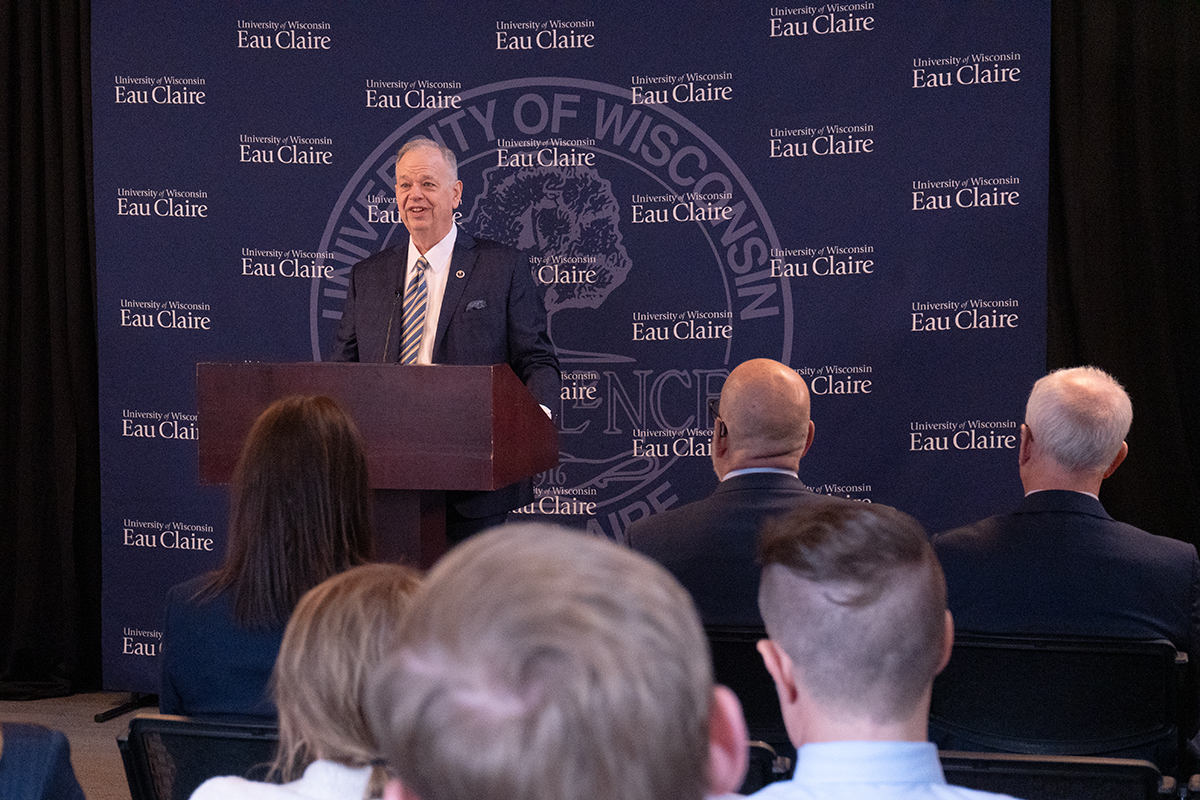As part of English Fest put on by the UW-Eau Claire English department, linguistics expert Dennis Preston, professor and co-director of the Center for Oklahoma Studies at Oklahoma State University presented a lecture titled, “Boarders On the Land and in your Head,” at 7 p.m. March 5 in the Ojibwe Ballroom of the Davies Center.
At his presentation, Preston spoke talk primarily about the field of perceptual dialectology. Perceptual dialectology, according to Preston, means people ignore what linguists technically know about dialect areas, and instead talk to real people, who have no background in linguistics, people who judge the words and the world around them by what they see and hear.
Preston said this translates into something called folk linguistics.
“A lot of people take folk to mean false; I don’t think that at all,” he said. “I assume that in some cases, folk linguistics and therefore the perception of dialect areas doesn’t overlap perfectly with what linguists know but in some other cases we actually feel that sometimes the way people respond to dialects, accents, gives us a clue to do even other kinds of scientific research that we maybe didn’t think of before.”
During his talk, Preston spoke about how people in the same state may have different ways of pronouncing words, or have different words for the same kind of product, such as a teeter-totter and a see-saw.
Preston said stereotypes of the South are something he has thought a lot about. He said the stereotypes have changed throughout generations, such as if you asked an older generation, they might connect the South with the confederacy, education and slavery. In a younger generations, many may think of “The Dukes of Hazzard” and “The Beverly Hillbillies.”
He said linguistics shape our identity, even unconsciously.
“Those things at first seem kind of cute, and anthropological and social scientific,” Preston said. “But linguists do it because we think they also put pressures on people to behave in a certain way or even more importantly not behave in a certain way.”
An English 221 class taught by Associate Professor of linguistics Erica Benson had students in the class read an essay of Preston’s, and said because of that, the English department wanted to bring him to the university in order for students to learn directly from him in a more hands-on way.
“We thought it was important to bring someone who knows a little bit about dialects and can talk to people about what people think about language,” Benson said.
After Preston’s presentation, Benson said she wants students to take away something new.
“I hope they will have a better understanding of dialect areas of American English from the linguist perspective as well as from the average everyday person’s perspective and how those relate to each other and can talk to people about what people think about language,” Benson said.
Erin Stevens, a junior who is in English 221, said she really enjoyed reading Preston’s work and also being able to see him present his material in a real life situation.
“I think (linguistics) is important because it’s interesting to see how language in the end all ties back together and it doesn’t even matter which you speak, English, German, all the basic sounds and basic concepts of language are fundamentally the same,” Stevens said.
English Fest continues throughout the semester and Benson hopes students and the community keep showing an interest in the literary world.







